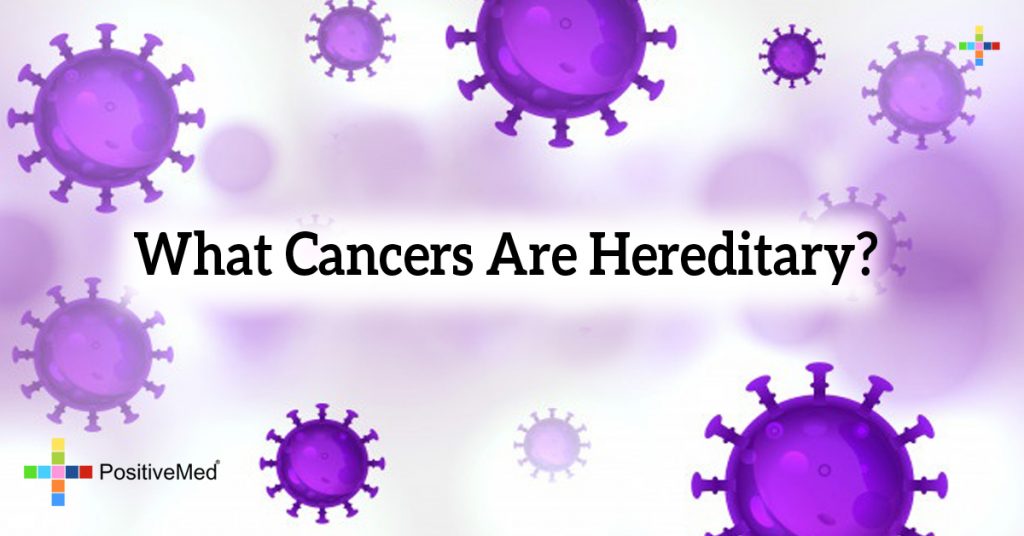
What Cancers Are Hereditary?
As science discovers more and more about the genetic mutations that cause cancer, medicine can begin determining the likelihood of developing cancer before the actual cancer even develops. Here are the top five cancers that can be inherited compared to the top five without a serious genetic component.

Top Five Cancers You Can Inherit
1. Melanoma – Skin Cancer: When you inherited your fair complexion from one or both parents, you may also have received their genetic vulnerability skin cancer. About 10% of melanoma cases can be traced to genetic factors. In fact, 25% of people who have a mutated copy of the CDKN2A gene eventually develop melanoma.
2. Ovarian Cancer: Ovarian cancer tends to co-occur with breast cancer; however, ovarian is generally considered more highly heritable in general population. Some familial cancer syndromes can yield a higher rate for both types of cancer. The BRCA1 gene accounts for between 40 and 60% of cases of ovarian cancer. Other genes may play a role as well.
3. Thyroid Cancer: The thyroid is a butterfly-shaped gland located in the neck. Cancer in this gland is linked to several inherited genes; however, medullary thyroid cancers are more often heritable. About 25% are caused by an inherited gene mutation.
4. Pancreatic Cancer: One of the most lethal cancers, pancreatic cancer is more common in those with diabetes, which has its own heritable component. Genes are directly linked with about 10% of pancreatic cancers, but family histories indicate that undiscovered genetic factors played an even greater role.
5. Retinoblastoma – Eye Cancer: Although uncommon, retinoblastoma is a childhood cancer of the eye that can lead to loss of vision, complete blindness, or death. An estimated 40% of children with this cancer inherited a faulty gene known as RB1. Cases with a direct genetic cause (RB1) tend to effect both eyes. Non-heritable retinoblastoma generally effects one eye.

Top Five Cancers Not Linked to Heredity
1. Colo-rectal Cancer: This type of cancer accounts for 21% of cancer diagnoses in the US. The causes are primarily a combination of age and lifestyle, including poor diet and a sedentary lifestyle.
2. Lung Cancer: The deadliest cancer for males and females, lung cancer is related to cigarette smoking and environmental conditions, like smog or exposure to particulate.
3. Liver Cancer: Again, lifestyle plays the dominant role in the development of this cancer, especially alcohol and smoking. People diagnosed with cirrhosis are more likely to get liver cancer.
4. Non-Hodgkin Lymphoma: This is one of the many types of blood cancers. While its causes are still being investigated, they do not generally include heredity, but viral infections many be the primary culprit.
5. Cervical Cancer: This one has a viral cause too – human papillomavirus – along with a higher incidence among smokers. Thankfully, unlike this above, this cancer can be prevented through vaccination and good choices, like not smoking.





